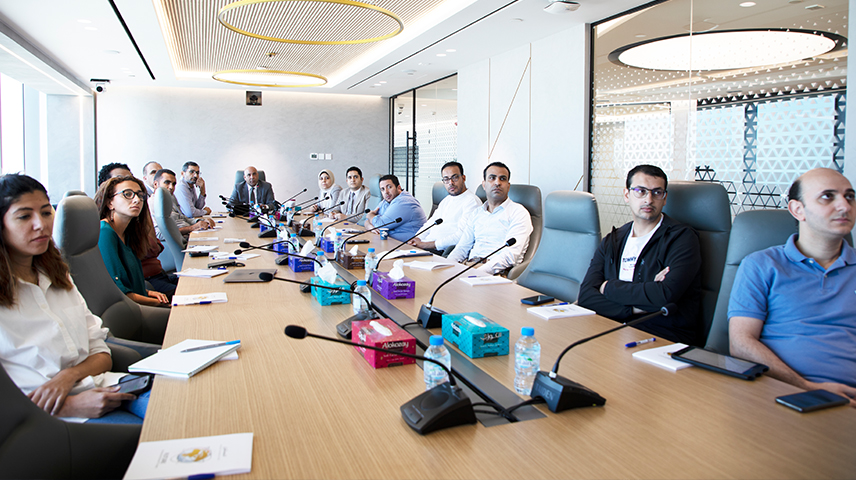Future for Advanced Research and Studies (FARAS) held a workshop on December 5, 2023, bringing together various regional and global experts to discuss the climate change crisis from the perspective of the Global South and attempt to propose solutions.
The list of attendees included Dr. Hamdy Abdel Rahman Hassan, Professor of Political Science at Zayed and Cairo Universities; Dr. Muhammad Amin Al-Karim, visiting professor at the University of Malaya in Malaysia; Dr. Mady Ibrahim Kante, professor at the Faculty of Law and Political Science at the University of Bamako in Mali; Dr. Dalila Gharbaoui, Postdoctoral Fellow at the University of Canterbury in New Zealand. The workshop was attended by researchers in the think tank and was moderated by Ms. Aya Yahya, head of the COP28 program.
A Global Crisis
First, Dr. Hamdy Abdel Rahman stressed that the climate change crisis has become one of the non-traditional threats to countries' national security, given the risks it poses, such as climate migration. In this context, the battle in Darfur, Sudan, has been dubbed the world's first climate change war.
When discussing the climate change crisis, he made various crucial issues that should not be disregarded. The most significant of these is that the issue has grown to be global, and no single nation—big, small, or medium-sized—can adequately address it or come up with solutions. He also addressed the issue of financing, which has been at the heart of all climate change negotiations from the Paris Agreement to the current COP28 Conference of the Parties, highlighting the ongoing debate over how to provide climate financing, particularly in developing countries in Africa, Latin America, Southeast Asia, and the Pacific.
The topic of "climate justice" was highlighted as critical: large emitters, such as the United States and China, should pay their fair part to other developing nations in order for them to mitigate and adapt to the effects of climate change. This takes us back to the point that tackling climate change will require global response and cooperation, and no single country's efforts will suffice.
Countries have recognized the significance of changes in climate conditions and environmental transformations, as well as their consequences, and have undertaken policies to prevent and adapt to the negative impacts of climate change. As a result, scientists and academics have focused on the relations between climate change and security and its role as a threat amplifier. In this context, the UN conducted several conferences to analyze the impact of climate change on human security and make strategic suggestions for governments to address these concerns. This emphasizes the significance of the UAE hosting the COP28 summit, given that it represents a turning point in international efforts by providing the first comprehensive worldwide assessment of progress toward the Paris Agreement's goals.
The Case of Bangladesh
The discussion then moved on to examples of geopolitical issues that countries face due to climate change. Bangladesh, for example, is one of the countries most affected by the crisis, which has significantly impacted its citizens' economic and social life.
According to Dr. Muhammad Amin Al-Karim, Bangladesh is the world's largest delta on the northern coast of the Bay of Bengal. It is divided longitudinally into three major river basins: the Ganges, Meghna, and Brahmaputra, which all flow from the Himalayas. Since all these rivers have outlets in the Bay of Bengal, they bring loads of sediment from the Himalayas and deposit it there. As the climate warms, more ice melts, allowing more water to flow into the Himalayas. The phenomenon allows river basins to transport more sediment to the Bay of Bengal over time, and the continental shelf in this bay spreads to the south, increasing its size.
African Coast
Climate change has caused inhabitants in Africa's Sahel region, where the pastoralism system is based, to transfer their livestock from one place to another based on rainfall. The most significant issue that this region is currently facing is a lack of rainfall, which significantly impacts people's lives and livelihoods.
Concerning the challenges and opportunities associated with climate change adaptation in the African Sahel, Dr. Mady Ibrahim Kante stated that the region has been experiencing a multidimensional crisis for more than three decades and is plagued by endemic conflicts that are beyond the control of national and international stakeholders. There is little doubt that local administrations' political failure contributed significantly to the escalation of these crises. Domestic political tensions are building, population pressures are intensifying, and the threat of terrorism and violent extremism looms. Climate change has exacerbated these issues, creating a volatile climate in the African Sahel.
The African Sahel region's population is predicted to double to 160 million people over the next twenty years, highlighting the critical need for its countries to prioritize climate change adaptation and develop a sustainable and comprehensive growth path.
Pacific Region
Dr. Dalila Gharbaoui noted the presence of low islands, volcanic islands, and high islands in the Pacific region, which makes the effects of climate change in this region diverse. This is in terms of rising sea levels and flooding. Some islands, such as Vanuatu and Kiribati, are also threatened with extinction, resulting in the formation of "climate mobility."
She also emphasized the necessity of adaptation to climate change rather than migration and movement, pointing out that various reasons, including cultural ties to the land, call into question the notion that movement is always the solution. She recommended "staying with dignity" as an alternate option, highlighting the importance of rethinking climate-related mobility.
Participants emphasized the importance of conferences of the parties, particularly the current session, COP28, as this type of conference appears vital in attempting to achieve global consensus on how to finance climate change, provide assistance to developing countries affected by climate change, and reach rules for sharing climate change burdens, as well as the transfer of technologies and different experiences.


